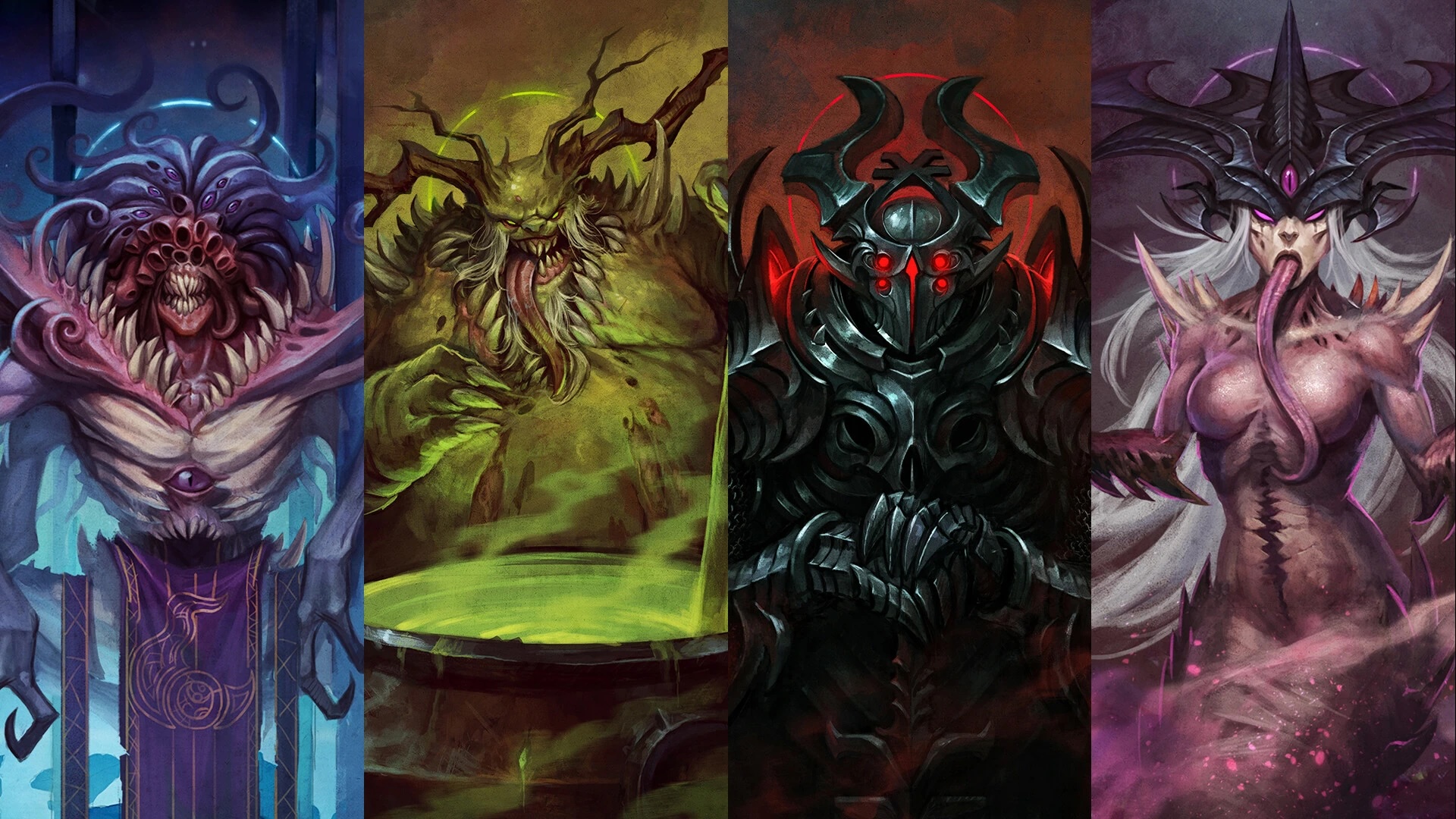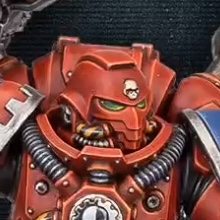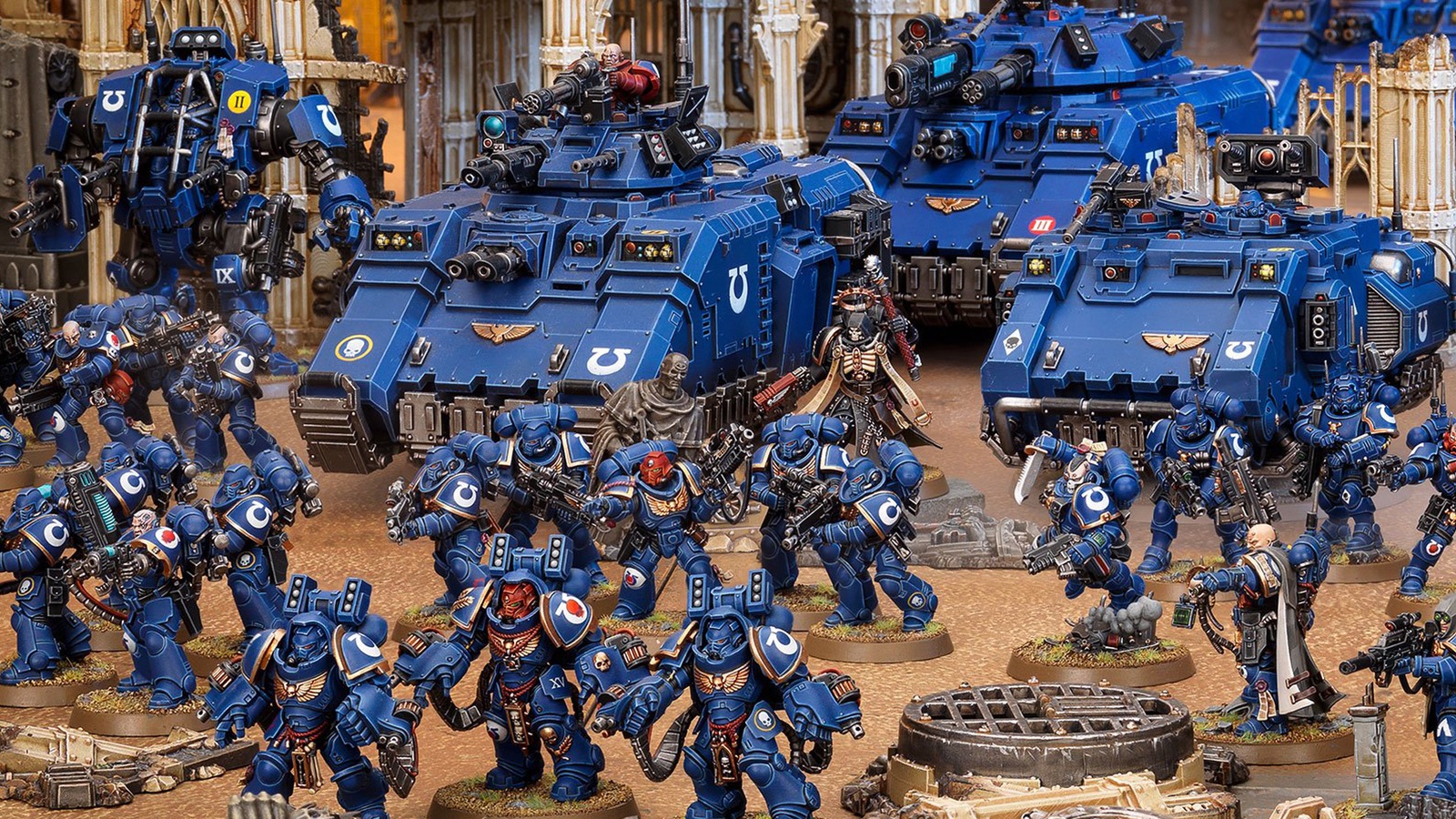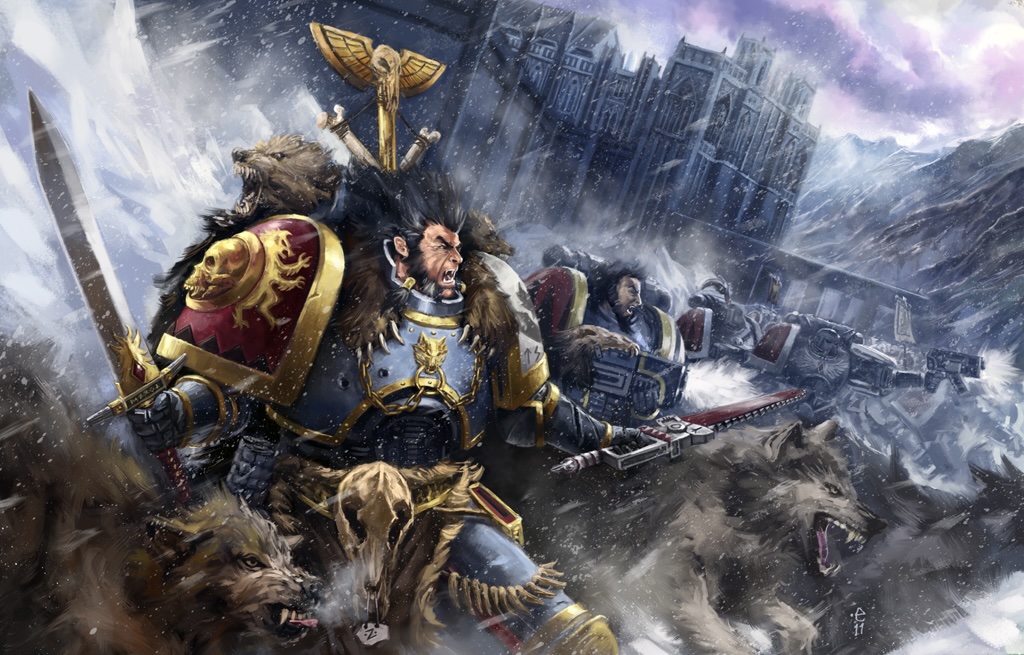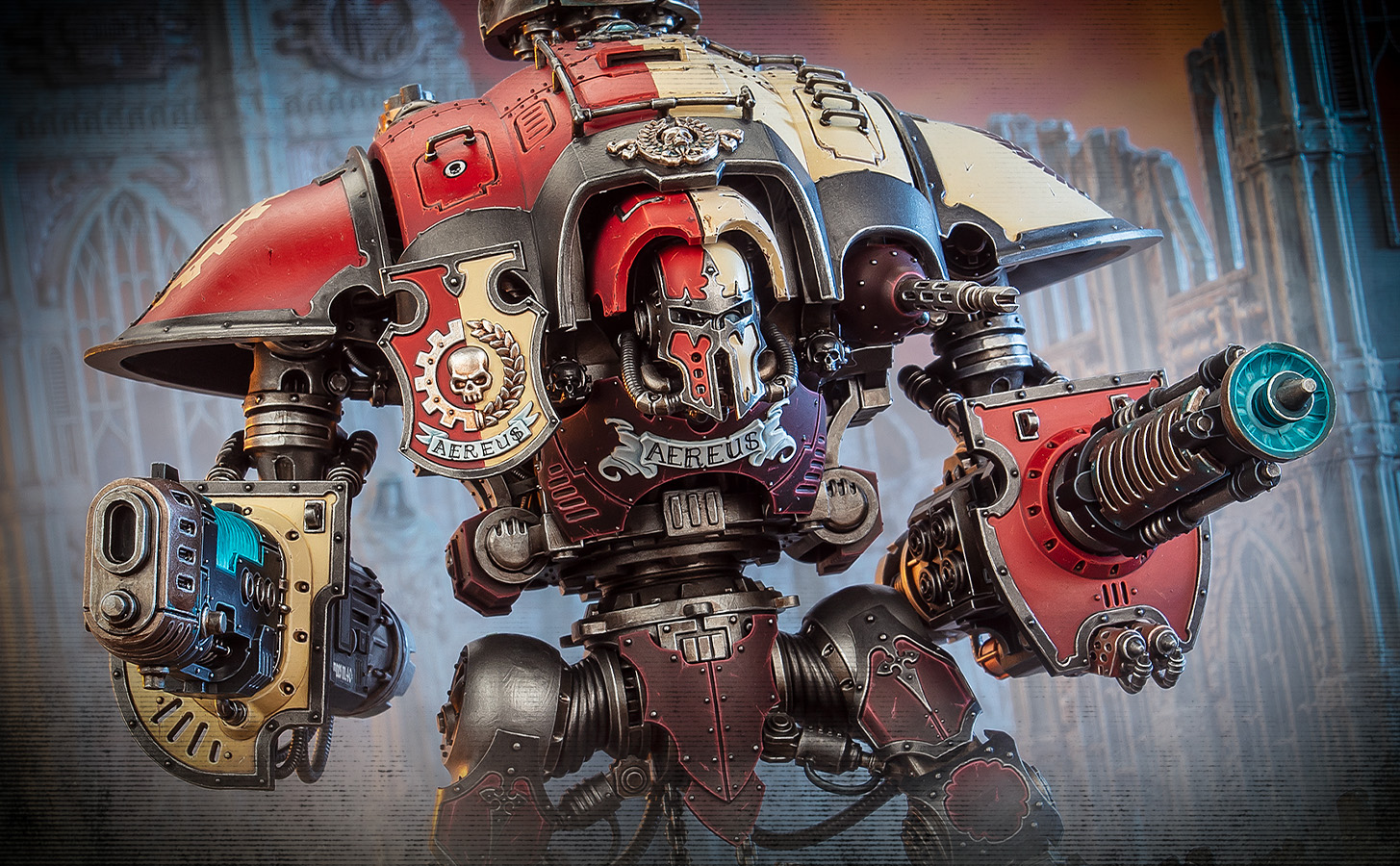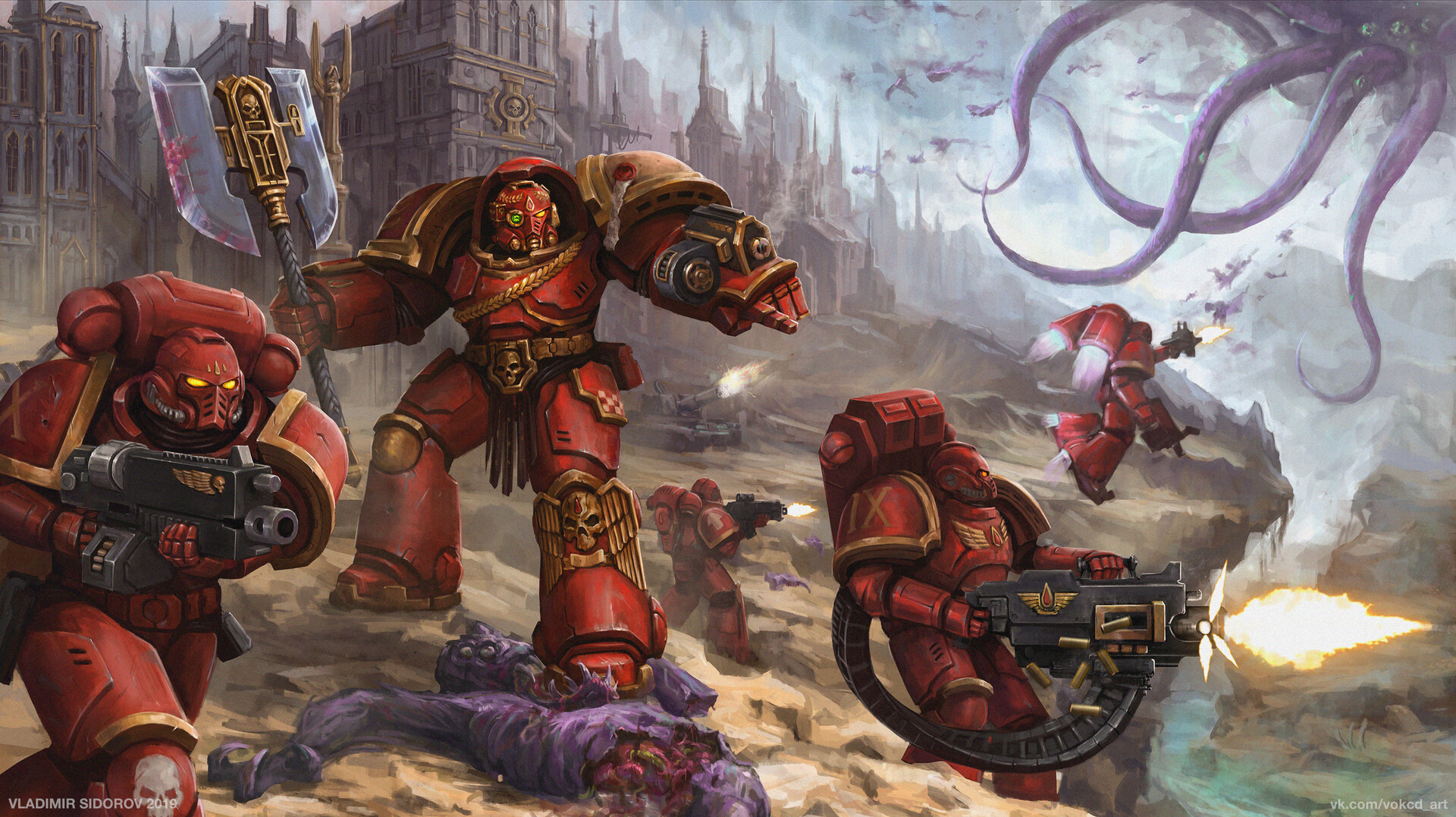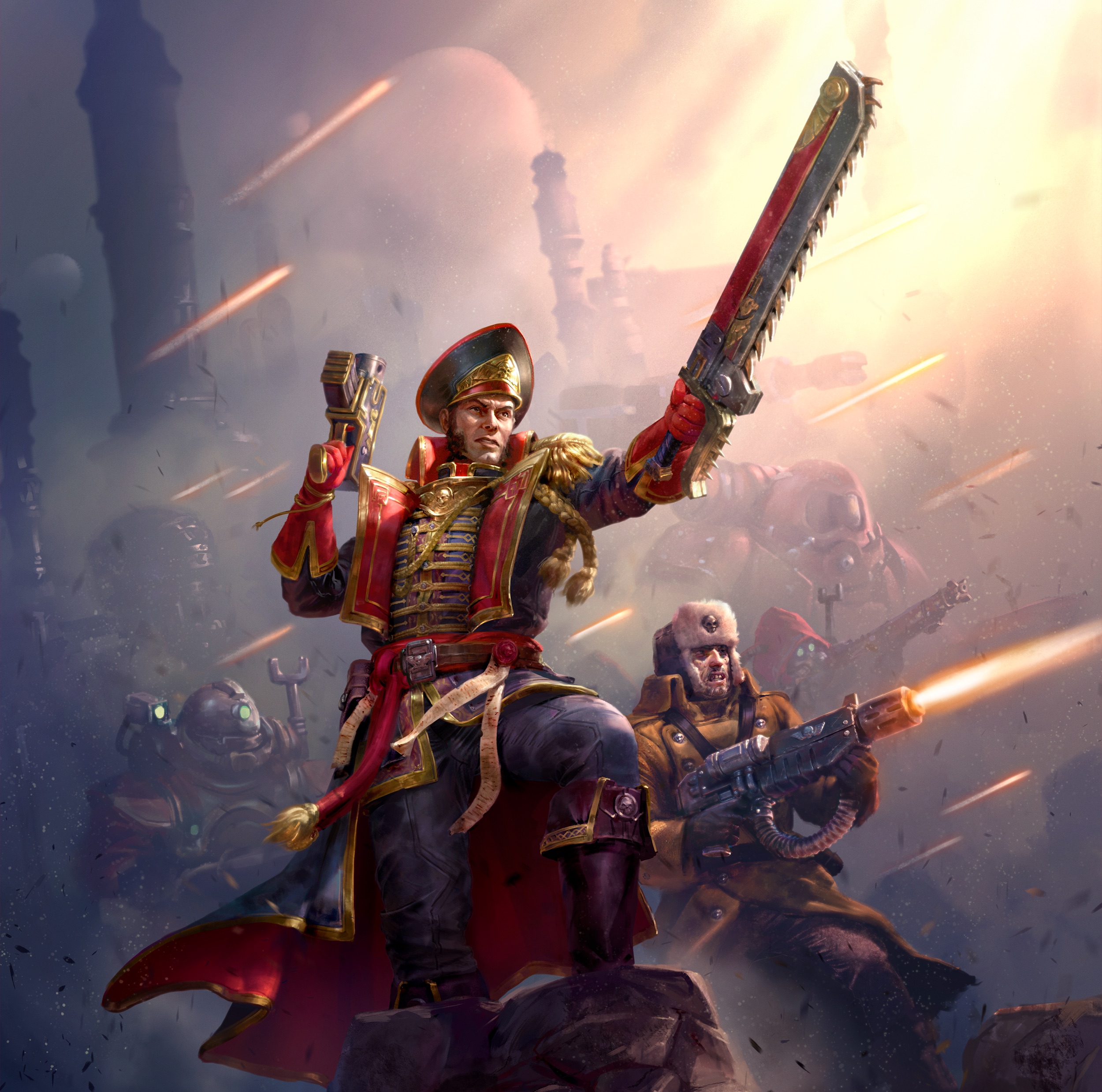Introduction
In the grim darkness of the far future, even a whisper of the Chaos Gods is enough to damn a soul. I write these words with a trembling hand, for this knowledge is forbidden – each syllable a heresy in the eyes of the Imperium. Beware, dear reader: to learn of the Dark Gods is to invite their shadow into your mind. The Inquisition would burn this tome and my body with it, for ignorance is often the only shield against the corruption that emanates from the Warp. Yet I proceed, compelled by duty and dread, to chronicle the truths that few dare even think aloud.
Know that Chaos is eternal, lurking beyond the veil of reality. It is the malignant force coiled within the Immaterium – the Empyrean, the Warp, the Sea of Souls – that hellish mirror-realm of nightmares and raw emotion. The Chaos Gods are the masters of that infernal domain, Ruinous Powers born of humanity’s darkest desires and fears.
They are fourfold in their greatness and iniquity: Khorne, Tzeentch, Nurgle, and Slaanesh. Each is a blasphemous deity, an immortal horror ruling over an aspect of damnation. To know their names is to court madness, but to ignore their existence is to stand defenseless against the ceaseless threat they pose to the galaxy.
The Nature of Chaos
Chaos is not merely an enemy to be fought with bolter and blade – it is a primordial force as old as thought and nightmare. The wise say it is the shadow cast by the light of consciousness. Every fury of anger, every despairing sob, every hidden lust in the heart of a mortal feeds the swirling depths of Chaos.
In the Immaterium, the psychic sea that lies beneath reality, these emotions take shape and hunger. The Warp, as it is known, is an ever-roiling tempest of souls and emotion, a place where reality and madness blur and the laws of nature hold no sway.
Within that shifting insanity lie the realms of the Chaos Gods. Unlike the tame deities of ancient myth, these Dark Gods are real and terrifyingly tangible in their own hellish plane. The Immaterium reflects the collective soul of the universe; it is malleable, shaped by thought and passion.
Thus were the Chaos Gods born: ceaseless war gave form to Khorne, endless scheming to Tzeentch, despair to Nurgle, and decadent excess to Slaanesh. Each god is a nexus of a particular strain of emotion, grown cancerous and divine.
The Chaos Gods are eternal yet ever-changing, for their power waxes and wanes with the tide of mortal feeling. In their Realm of Chaos, they scheme and war endlessly, each vying to outdo the others in dominance. Their will spills from the Warp into realspace through cursed artifacts, profane rituals, and insidious whispers that slither into the minds of men.
They cannot easily manifest in the material world – reality rejects the unreality of the Warp – but they have other ways. They work through mortal instruments, from cultists and witches to fallen heroes, and send forth legions of Daemons (shadows of their will given form) whenever the veil between worlds is thin. Thus, the influence of Chaos seeps like poison into the galaxy, subtle at first, then all-consuming and impossible to contain.
Khorne, the Blood God
Khorne is the Chaos God of anger, violence, and war. He is wrath incarnate – a towering figure of corded muscle and snarling fury seated upon a brass throne atop a mountain of skulls, the gruesome trophies of uncounted slaughter. In the dark pantheon, Khorne was the first to awaken, born in an age of strife from the bloodshed of endless wars.
Every drop of blood spilled, every life taken in anger, feeds his power. His throne rests in the Brass Citadel, a vast fortress in the Warp surrounded by plains of perpetual battle and rivers of blood. The very air trembles with the rage of combat, and the howls of the slain echo eternally through Khorne’s dominion.
Khorne cares not from whence the blood flows, only that it flows without cease. He despises weakness and lethargy; he scorns the trickery of sorcery and any form of cowardice or intrigue. The battle-cry of his followers resounds across countless war-torn worlds: “Blood for the Blood God! Skulls for the Skull Throne!”
To fight and kill in Khorne’s name is to offer him devotion as sacred as any prayer. His devotees are berserkers and butchers, overtaken by an insatiable hunger for violence. From frenzied hive gangers hacking apart their rivals with rusted blades, to the legendary Traitor Marines of the World Eaters Legion – once noble warriors of the Emperor, now lost to madness and bloodlust – all who revel in slaughter are beloved by Khorne.
It is said that those who earn Khorne’s favor are granted martial strength beyond mortal limits. In battle, they feel no pain, only the euphoria of wrath. Yet Khorne’s “blessings” are a curse, for his price is eternal war. There is no rest, no peace – only the thunder of war drums and the clash of blades forever.
Pity the worlds overrun by Khorne’s daemonic armies: bloodletters and bloodthirsters that exist only to kill, their hell-forged blades glowing with the heat of hatred. These abominations descend upon realspace when the veil weakens, turning cities into charnel houses. Such is the wrath of Khorne, the Lord of Skulls, that entire planets burn just to offer up a single worthy skull upon his towering pile.
Tzeentch, the Changer of Ways
Where Khorne is brute fury, Tzeentch is insidious cunning. He is the Changer of Ways, the Great Conspirator, the Chaos God of sorcery, change, and inevitable mutation. Tzeentch thrives on the schemes of mortals – every tangled plot, every hope and ambition, every lie whispered in the dark fuels his impossible labyrinth of plans.
His form is never constant; to gaze upon it is to behold a riot of colors and an endlessly shifting shape cloaked in robes of shimmering complexity. In one moment he might appear as a giant, many-hued avian creature, and in the next as a whirl of mystic energy studded with countless staring eyes. All is flux in Tzeentch’s presence.
Tzeentch’s realm within the Warp is the Crystal Labyrinth, a surreal domain of shifting pathways and impossible architecture. Its twisting corridors are lined with crystalline mirrors that hold lies and truth in equal measure, each indistinguishable from the other.
To walk this labyrinth is to risk losing oneself in endless machinations, for the very paths rearrange at Tzeentch’s whim. At the heart of this maze, upon a throne of writhing insanity, Tzeentch watches all futures and all fates, tugging at the strings of destiny like a mad puppeteer. Nothing pleases him more than change itself – the unfolding of a plan, the sudden twist that upends what once was certain.
Those who fall under Tzeentch’s spell are often the clever, the ambitious, or the curious. Imperial scholars seeking forbidden lore, psykers hungry for greater power, planetary governors plotting to outwit their rivals – these are the souls Tzeentch finds easiest to ensnare.
His followers may begin as secret covens poring over dust-laden grimoires and attempting small acts of witchcraft. In time, they find themselves transformed – body and soul – by the Changer’s gifts. The most accursed of his champions were once Space Marines of the Thousand Sons Legion, whose obsessive pursuit of knowledge and psychic mastery led them into Tzeentch’s embrace. They became living conduits of witch-fire and change, their loyalty bound forever to the Architect of Fate.
But Tzeentch is a fickle master – his gifts can betray as quickly as they are given. To serve him is to become a pawn in a convoluted game that no mortal mind can fully comprehend – a game that only Tzeentch, laughing in delirium, can hope to win.
Nurgle, the Plaguefather
In the darkest depths of despair, where life stagnates and hope withers, Nurgle finds his realm. He is the Great Lord of Decay, the Plaguefather – Grandfather Nurgle to the diseased and despondent. Of all the Chaos Gods, Nurgle is in a twisted way the most intimate with his followers, for his gifts fester within their very flesh.
He embodies the duality of despair and acceptance: the crushing inevitability of death, and the perverse comfort that comes from yielding to it. In Nurgle’s cracked and rotten grin there is a hideous parody of joy – the glee of a father who loves all his “children,” even as he infects them with countless plagues.
Nurgle’s realm in the Immaterium is the Garden of Nurgle, an immense and nightmarish sanctuary where life and death intertwine in grotesque harmony. It is a garden in eternal decay and bloom: every tree rots even as it bears foul fruit, every swamp teems with life wriggling in the muck of corruption. The air is thick with spores and miasma, yet also with a cloying fertility – for Nurgle is the god of life’s stubborn persistence as much as its corruption.
At the center of this rancid paradise, Nurgle toils over a colossal cauldron, concocting ever more virulent pestilences. From its bubbling depths he draws forth new plagues which his demonic servants carry out into the universe. Here too caper his countless tiny attendants, the chortling Nurglings, who splash and play in the effluence, spreading their Grandfather’s latest “gifts” with joyous abandon.
Mortals rarely choose Nurgle willingly; more often, they turn to him as a last resort. When famine, plague, or hopelessness grips a population, the Plaguefather’s embrace promises release from pain and fear.
Desperation is his gateway. An aging ruler fearing death might beg Nurgle for deliverance – and Nurgle will grant it, of a sort. The ruler becomes immortal in a fashion: his body a home to unending disease, unable to die yet trapped in perpetual decay. To Nurgle’s devoted, the boils and sores that blossom across their bodies are marks of favor, numbing them to pain and doubt. They feel a grotesque joy in the absence of fear, a grim acceptance of their wretched state.
The Traitor Marines of the Death Guard Legion, led by the Daemon Primarch Mortarion, learned this lesson when a supernatural plague rotted them alive during the Horus Heresy – only by giving themselves to Nurgle were they spared true death, becoming his chosen: bloated, plague-ridden giants immune to pain and doubt, spreading sickness across the stars in Nurgle’s name. Grandfather Nurgle loves all his children, and in his love they are damned to wallow forever in filth and decay unending.
Slaanesh, the Dark Prince
Last born of the Chaos pantheon is Slaanesh, the Dark Prince of Excess, the Lord of Sensation. Slaanesh sprang into existence from the most indulgent excesses imaginable – birthed in an apocalyptic orgy of pleasure and pain that shattered an ancient civilization.
Slaanesh is a being of exquisite beauty and terrible ruin, often appearing as unnaturally perfect, androgynous, with an allure that no mortal can resist. A haunting laughter, seductive and cruel, heralds Slaanesh’s presence. This Chaos God embodies excess in all forms: not only pleasures of the flesh, but the thrill of victory, the vanity of the artist, the obsessive pursuit of perfection, and the sweet despair of utter self-indulgence.
The realm of Slaanesh is a seductive paradise – and a hell of unending torment in equal measure. Within the Warp, Slaanesh’s domain is a vast palace of countless delights, where every sensation a soul could desire is made tantalizingly real. Its halls are filled with music so enchanting it ensnares the mind, banquets of impossible taste, and gardens of alien bliss that intoxicate the senses.
But this paradise is the bait on a barbed hook. Those lured into the Dark Prince’s embrace soon find that pleasure and pain become indistinguishable. What was once ecstasy turns to agony, and then back again, in an endless cycle.
At the center of this perfumed prison, Slaanesh reclines on a throne of living crystal and quivering flesh, attended by legions of daemonic courtesans and serpentine fiends. The Prince’s every whim is law in this land of excess, and those who enter it are seldom seen again with sane eyes.
Slaanesh’s influence over mortals is the most subtle of all the Chaos Gods; many victims do not realize their peril until they are fully engulfed. It might begin with a noble’s quest for ever-greater luxury, an artist striving for the perfect creation, or a warrior seeking the height of exaltation in battle.
Each small indulgence, each push beyond the limit, feeds the Prince of Pleasure. Cults devoted to Slaanesh often start as secret salons of sensation – gatherings to experience music that enthralls or forbidden rites that stir the blood. But as with any addiction, the need for excess only grows.
Soon, boundaries are broken that should never be crossed. To worship Slaanesh is to surrender to obsession. The Dark Prince promises every pleasure imaginable and delivers them – at the cost of one’s soul, slowly consumed by an unquenchable lust that can never be sated.
The Influence of Chaos
The touch of Chaos is insidious, and its reach stretches into every corner of the galaxy. The Chaos Gods seek constantly to seep into the material realm, whether through brute force or subtle corruption. Cultists devoted to the Ruinous Powers hide within Imperial society on countless worlds, their faith a cancer growing in the darkness.
The ranks of these heretics are drawn from all walks of life – the wrathful, the ambitious, the despairing, and the depraved – none are beyond the reach of Chaos’s whisper. In hidden archives, a scholar discovers a proscribed tome and soon finds himself murmuring Tzeentch’s spells by candlelight.
Meanwhile, a plague-stricken mother prays for her dying child – a plea that Grandfather Nurgle answers with a blessed contagion. In this way does Chaos infiltrate the hearts of the unwary.
When subtlety fails, Chaos shows its true face in war and daemon-fire. The most infamous agents of the Dark Gods are the Traitor Legions of Space Marines – once the Emperor’s elite, now corrupted champions of Chaos. Ten millennia ago, during the Horus Heresy, brother turned against brother as Warmaster Horus and many of the Emperor’s Legions embraced the Ruinous Powers. They were seduced by promises of power, immortality, revenge – whatever their hearts most craved – and in turn they became the greatest mortal instruments of Chaos.
The World Eaters hacked their way across the stars for Khorne; the Thousand Sons unleashed sorcerous hellfire for Tzeentch; the Death Guard spread plague and despair for Nurgle; and the Emperor’s Children wallowed in perverse excess for Slaanesh’s glory.
To this day, these Traitor Marines and their warbands continue to plague the Imperium. Alongside them march uncounted heretics and mutants, corrupted Knights and entire cult armies, all howling praises to the Dark Gods. Wherever these servants of Chaos go, the fabric of reality weakens, and through the cracks slip the Daemons: hosts of gibbering horrors, blood-drenched killers, plague-ridden beasts, and alluring fiends – each a shard of its patron’s eternal will made manifest.
The galactic impact of Chaos is evidenced by endless war and the gnawing paranoia that grips humanity. Whole star sectors have fallen into anarchy under its sway. Worlds become charnel houses of battle, plague-wracked hellscapes, or sink into orgies of unrestrained depravity.
Even those planets still under Imperial control feel the threat: the howling Warp storms that cut them off from hope, the whispers of cult activity and daemonic incursions that make every governor sleep fitfully, pistol in hand.
The Emperor of Mankind Himself, it is said, fights an eternal battle from the Golden Throne to hold back the Warp’s tide from consuming humanity entirely. This is the ultimate horror of Chaos: it cannot be destroyed, for it springs from the flaws within every soul.
At best it can be resisted – held at bay by the sacrifice and faith of billions – but it can never be truly defeated. Chaos is the enemy within and the enemy without, the primordial foe that will exist so long as a single being harbors anger, ambition, despair, or desire.
Conclusion
Thus concludes this ill-omened account of the Chaos Gods – may the Emperor forgive me for committing it to writing. We have seen that each of the Ruinous Powers is horrific in its own way: Khorne with his bloodlust and unending war, Tzeentch with his labyrinthine schemes and mutating deceit, Nurgle with his foul bounty of decay, and Slaanesh with the drowning lure of excess.
Their influence stains the galaxy – an unceasing temptation, an eternal threat. No prayer alone can banish Chaos, for it lives in the darkness of the human soul. Only through unyielding vigilance, purity of heart, and the harshest of measures can mankind hope to withstand the onslaught.
Take this knowledge and guard it well – or better yet, forget it after reading these pages, if you value your soul. The more one learns of Chaos, the more its whispers beckon from the shadows. I pray you have the strength to resist that call.
I set down these truths so that others might recognize the signs of corruption and halt its spread, but I do so at great peril. My final warning to you, dear reader, is this: beware the Darkness both within and without. The Chaos Gods are patient, and they are hungry.
If your guard should falter for even an instant, they will strike. In the end, only the Emperor’s light stands between humanity and the abyss. Trust not the voice that tempts from the shadows, and let this last lesson be etched in your heart: Chaos ever awaits, and it ever hungers.
